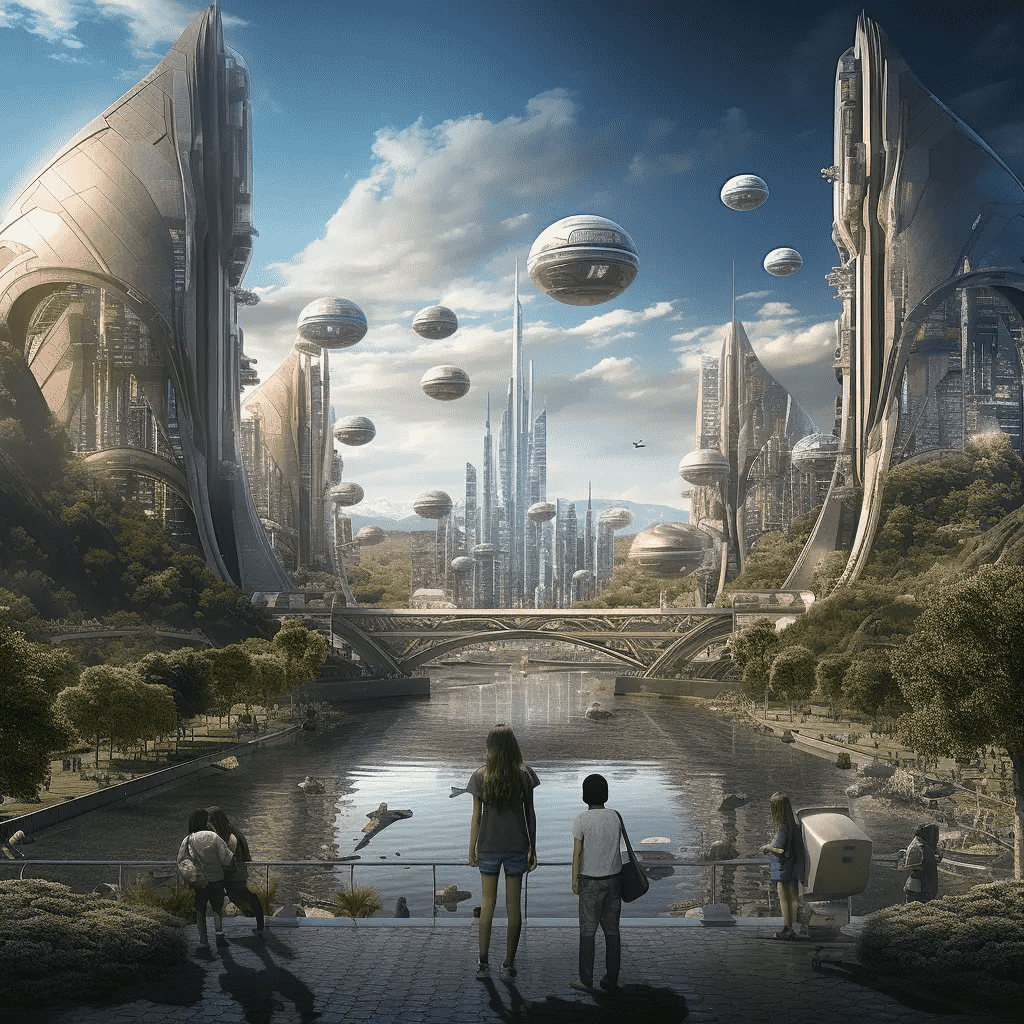2040 Tipping Point
We are at the cusp of technology where remarkable breakthroughs are emerging in artificial intelligence, space exploration, genetic modification, and human enhancements. All of these technologies are expected to become a reality in the future. Don’t you want to see that? Don’t you want to be around when that happens? Our primary goal should be to witness these breakthroughs firsthand and benefit from the positive changes they bring.
By 2030, we can expect significant advancements in various fields, improving the overall quality of life. The 2040s, however, will mark a turning point, as groundbreaking technologies become accessible to at least the affluent population, revolutionizing health, AI, and computation.
Around 2040 or 2050, we may reach a tipping point where, if we can maintain our health without any metabolic or irreversible damage, scientific breakthroughs could potentially extend our lifespans significantly. This may include repairing mutated genes, rejuvenating cells, extending telomeres, and developing systems for automatically detecting and neutralizing pathogens and toxins. Medical advancements could also allow for the growth of organs in a lab, replacing diseased or damaged ones, and nanobots could monitor and repair internal organs. Personalized gene assistants could tailor medicine based on an individual’s genetics, lifestyle, stressors, location, and environment.
As wearable devices become more commonplace, both externally and internally, we may be able to develop technologies that repair damaged cells and replace them with new ones. This could potentially eliminate the concept of dying from old age, as we could continually replace bad cells with new ones, eradicating concerns about aging and disease. Cures for cancer and other diseases may become available, with people dying from accidents or by choice rather than age or disease.
To reach this tipping point, we must use our current knowledge and breakthroughs to maintain our health and preserve our organs. It is essential to develop a strategic plan to increase our chances of survival. While 100% survival cannot be guaranteed, our dedication, beliefs, and resources can significantly improve our odds.
Prioritizing health and continuous personal growth and learning about our bodies and environments is crucial. By doing so, we can positively contribute to society and ensure a better future for all. Embracing new technologies and advancements will enable us to lead productive, beneficial, and successful lives, looking forward to a future where age and disease no longer hold us back. Be a net giver, not a taker, and approach life with excitement for the future. Study new technologies and implement those that have been tested and proven to be advantageous, leading a productive, helpful, and successful life.
As we progress further into the future, not only will our physical well-being be enhanced by breakthroughs in science and medicine, but our mental well-being will also see significant improvements. Advances in neuroscience and AI will allow us to develop personalized mental health treatments and therapies, enabling individuals to overcome psychological challenges more effectively.
The integration of AI into our daily lives will lead to new forms of communication, decision-making, and problem-solving. The line between humans and technology will blur as we develop brain-computer interfaces that allow us to communicate telepathically, control machines with our thoughts, and access vast amounts of information instantaneously.
One of the critical factors in reaching this future utopia is a focus on education and ethical considerations. We must ensure that future generations are not only equipped with the necessary technical skills but also with a strong moral compass that helps them navigate the complex ethical dilemmas associated with advanced technologies. This will involve redefining our education systems, emphasizing critical thinking, creativity, and empathy to create a more inclusive and understanding society.
Climate change and resource scarcity will also need to be addressed, as they have the potential to disrupt our progress towards this ideal future. By investing in sustainable technologies and responsible resource management, we can mitigate the negative impacts on our planet and ensure that we leave a healthy and habitable world for generations to come.
As we strive towards a future utopia, we must also ensure that our technological advancements are inclusive and accessible to all. This means that efforts should be made to bridge the digital divide and provide resources to underserved communities so they too can participate in and benefit from the digital revolution.
Artificial intelligence, robotics, and automation will continue to transform the way we live and work. As these technologies become more sophisticated, we must be prepared for the potential displacement of certain jobs and industries. A focus on reskilling and lifelong learning will be essential to ensure that individuals can adapt to these changes and continue to contribute meaningfully to society.
Another critical aspect of our future utopia is global collaboration. In a world that is increasingly interconnected, we must work together to tackle challenges such as climate change, pandemics, and geopolitical conflicts. By fostering international cooperation and promoting diplomacy, we can work towards collective solutions that benefit all of humanity.
Ultimately, the key to achieving a future utopia lies in our ability to prioritize empathy, compassion, and collaboration. By embracing diversity and working together, we can overcome the challenges that lie ahead and build a world that is not only technologically advanced but also just, equitable, and sustainable. This future utopia is within our reach, but it requires the collective efforts of individuals, communities, and nations to make it a reality.
In conclusion, the future holds immense potential for growth, innovation, and discovery. By focusing on health, education, and ethical considerations, we can build a world in which aging and disease are no longer barriers to living long, fulfilling lives. The key to reaching this future utopia lies in our ability to work together, share knowledge, and prioritize the well-being of all members of society. With the right mindset and dedication, we can create a future that offers limitless possibilities for everyone.

